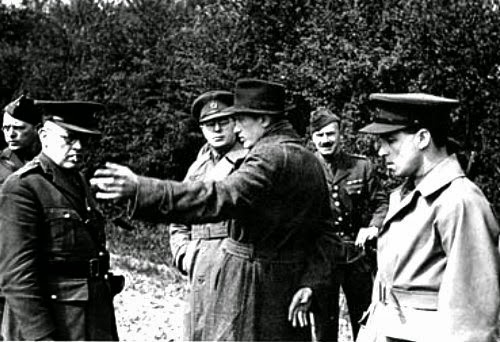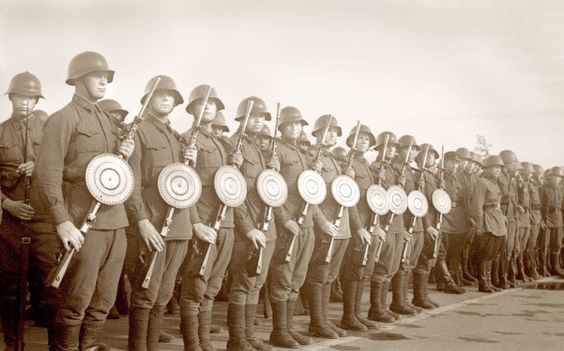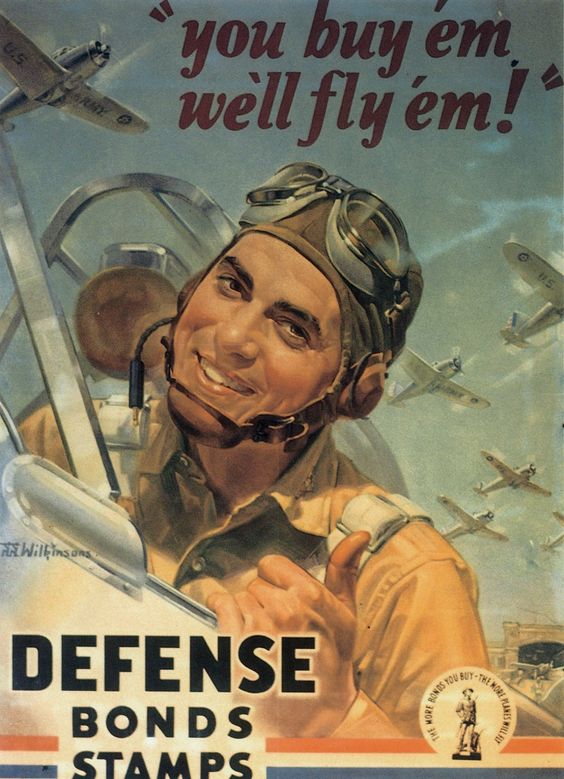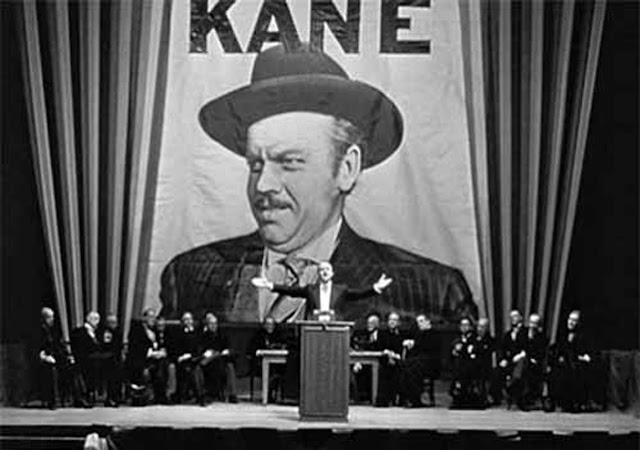Sunday 18 May 1941
 |
| A B-17 Fortress (Model 299) Mark I, AN529, on the ground at Ayr/Heathfield, Ayrshire, shortly after arriving from the United States. AN529 later joined No. 90 Squadron RAF and later flew in Liby (© IWM (E(MOS) 276)). |
Anglo/Iraq War: Luftwaffe Special Force Junck (Sonderkommando Junck), after only a few days at Mosul, already as of 18 May 1941 has suffered a 30% attrition rate. Luftwaffe Oberst Werner Junck now has 8 Messerschmitt Bf 110s, 4 Heinkel He 111s, and 2 Junkers Ju 52s. Oberst Junck also has few bombs or supplies, so repairing his planes requires cannibalizing others. After his fierce introduction to the theater, Junck begins husbanding his forces and avoids engagements pending further reinforcements - whenever they might arrive.
The British advance on land continues, with a company of King's Own Royal Regiment being transported by air on the road to Baghdad. The RAF pounds Fallujah, which troops of column Kingcol are approaching. In addition, the British bomb airfields in Syria being used as transit points by the Luftwaffe.
Air Vice-Marshal Harry George Smart, who heroically has been in command at Habbaniya, is relieved of command now that Kingcol has arrived. In a murky incident, Smart suffers some kind of mental breakdown due to the strain of command. He is taken to Basra aboard a DC-2 for transport back to England and is replaced by Air Vice Marshal John Henry D’Albiac in command of the RAF in Iraq.
European Air Operations: It is a rare day in the northwest European theater when neither the Luftwaffe nor RAF Bomber Command launches any major operations.
East African Campaign: With surrender to the British agreed to on the 17th, the Duke of Aosta prepares to march out of his fortress of Amba Alagi with his 18,000 troops on the 19th. The Italians will exit in parade formation and temporarily be permitted to keep their rifles. The entire affair is quite cordial, and the Duke lunches with General Mosley Mayne, the British commander of the 5th Indian Division in the Duke's mountain cave. Both sides adhere to the agreement scrupulously, with the Italians leaving their installation intact and the British not molesting their captives.
Battle of the Atlantic: U-107 (Kptlt. Günther Hessler) is operating about 130 miles southwest of Freetown when Hessler spots a ship in the evening. It is an independent 8286-ton British refrigerated ship Piako. Hessler pumps one torpedo into the Piako at 22:27, then another at 22:43. The radio operator has enough time to get off distress signals, and the crew gets off in good order. Ten men perish and 65 survive, to be picked up by destroyer HMS Bridgewater.
The Luftwaffe bombs and sinks 483-ton British freighter Begerin about 17 miles south of South Bishops. Everyone survives.
The Luftwaffe bombs and damages 472-ton British freighter Eskburn off Blythe. The ship is disabled and must be towed to the Tyne for repairs.
The Luftwaffe bombs and damages 51-ton Free French fishing trawler La Brise about ten miles northwest of Sevenstones Lightship (moored off the Seven Stones Reef, which is almost 15 miles (24 km) to the west-northwest (WNW) of Land's End, Cornwall, and 7 miles (11 km) east-north-east (ENE) of the Isles of Scilly). The trawler manages to limp into Newlyn.
Royal Navy 84-ton naval drifter HMT Jewel hits a mine and sinks in Belfast Lough. There are 14 deaths, including master Lt. H.J. Cresswell.
U-126 (Kptlt. Ernst Bauer) is virtually within sight of Bismarck and Prinz Eugen at Gdynia (Gotenhafen) when it collides with U-boat Depot Ship for the 27th U- Boat Flotilla Seeburg. The U-126 is still working up for its first war patrol, and the damage to both ships is relatively minor.
Operation Rheinübung ("Rhine Crossing") is set to begin, so battleship Bismarck and heavy cruiser Prinz Eugen make preparations to leave Gdynia (Gotenhafen). Admiral Lutjens, a hero of the invasion of Denmark and Norway (Operation Weserübung) and the daring sortie by heavy cruisers Scharnhorst and Gneisenau earlier in the year (Operation Berlin), and also Commander of Battleships and the third Flottenchef (Fleet Commander) of the Kriegsmarine, is in command of the operation. At 10:00, Lutjens inspects Prinz Eugen's crew, then holds a commanders' conference on Bismarck with Kapitän zur See Harald Netzband (Lütjens Chief of Staff), Generaladmiral Alfred Saalwächter (Commanding Officer, Group West) and the two commanding officers of Bismarck (Lindemann) and Prinz Eugen (Brinkmann). Lutjens briefs them on the mission and informs them that the ships will sail north along the Norwegian coast and refuel from tanker Wesenburg, then proceed through the Denmark Strait to the open Atlantic.
Prinz Eugen leaves port for Operation Rheinübung at 21:00. The Bismarck waits until the morning of the 19th. In Scapa Flow, Admiral Tovey has received reports (possibly through Ultra) of such a sortie, and today he gives cruiser HMS Suffolk, on patrol in the Denmark Strait, orders to keep a close watch for German ships.
A key feature of Operation Rheinübung is the Kriegsmarine's supply network in the Atlantic, so far relatively undisturbed by the Allies. German 9789-ton tanker Egerland relieves tanker Nordmark today, and the latter proceeds to the Bay of Biscay and, ultimately, Hamburg.
Convoy OB 324 departs from Liverpool.
Royal Navy destroyer HMS Lightning (Commander Richard G. Stewart) is commissioned.
Canadian corvette HMCS Baddeck (Lt. Alan H. Easton) is commissioned.
Battle of the Mediterranean: The Italian High Command in Rome issues a communique stating in part that "Our counteroperations against the Allies in North Africa have been completely successful." This is close to the truth, as the British still retain Halfaya Pass but otherwise have relinquished their recent gains from Operation Brevity. That Rome is announcing this success rather than Berlin is an expression of Hitler's desire to make Mussolini and his military seem more imposing than most think that they are.
The activity on the Operation Brevity front in southeast Libya dies down, and the opposing forces settle down to garrison duty. General Erwin Rommel, in command of the Afrika Korps, begins planning an attack on Halfaya Pass to restore his original lines.
Everyone's attention now shifts to Crete, which the Luftwaffe is preparing to invade with airborne troops and British Prime Minister Winston Churchill knows is next on the German docket of operations through Ultra decrypts. Churchill sends messages full of foreboding to Mediterranean Fleet commander Admiral Sir Andrew Cunningham and the commander of British forces on Crete, General Freyberg, telling Freyberg that these are "fateful days" and Cunningham that the outcome of the battle will "affect whole world situation. Hitler, meanwhile, has pawned the difficult Operation Mercury off on Hermann Goering and shows very little interest in it. The British codename for the defense of Crete is Operation Scorcher.
The British continue reinforcing Crete, which already is packed with soldiers who basically are refugees from the failed campaign on the mainland. After sunset, 700 Argyle and Sutherland Highlanders arrive at Tymbaki, Crete from Port Said on troopship Glengyle.
The Luftwaffe continues its operations against British installations on Crete in preparation for Operation Mercury. During an attack on Suda Bay, the German planes further damaged heavy cruiser HMS York, which has been disabled since an attack by Italian explosive motorboats on 26 March, and corvette Salvia. The Luftwaffe also damages 12,667 ton Royal Navy tanker RFA Olna during the attack and its master prevents sinking by beaching it.
The Luftwaffe lands planes on mainland Greece, in the north, and in Attica in the south, in preparation for Operation Mercury.
Royal Navy submarine HMS Tetrarch, on patrol off Benghazi, torpedoes and sinks 2362-ton Italian freighter Giovinezza.
At Malta, it is another quiet day, as the Luftwaffe merely carries one reconnaissance flight without incident. RAF reconnaissance reports that a hospital ship, apparently the Aba which had been attacked by Luftwaffe planes on the 17th, was approaching the island.
German/Vichy French Relations: While the Germans have reached an agreement with Vichy French Vice Premier Admiral Darlan on several matters, the agreement remains uncertain. Adolf Hitler is unhappy with Foreign Minister Ribbentrop and Ambassador Abetz for making too many concessions (release of French prisoners in exchange for transit rights in Syria), and lets loose one of his famous rants at Ribbentrop's expense. Hitler also has mixed feelings about how to treat France, feeling that the Vichy regime is unstable and the entire country will have to be invaded at some point. At this time, however, no changes are made in any agreements with the French. Somewhat tellingly, he is more concerned about the French today than he is about the imminent invasion of Crete.
Anglo/Irish Relations: Winston Churchill responds to a request by General Ismay and Viscount Cranborne for armaments sales to the government of Eire by stating in part:
Soviet Military: Around this time, the Politburo becomes concerned about the high accident rate in the Red Air Force. The members also are perturbed about a mysterious incident in which a German transport manages to fly into Moscow and land without being detected by the Soviet Air Defense. This incident is poorly understood, with few known facts (it may have been a Junkers Ju 52, a Junkers Ju 88 reconnaissance plane, or perhaps a DC-2 in German civil service). However, what is known with certainty is that it sends Soviet paranoia about pro-German conspiracies within the Red Air Force skyrocketing.
Croatia: The Independent State of Croatia is established. Prince Aimone, the Duke of Spoleto and next in line to be the Duke of Aosta and a cousin of King Victor Emmanuel III, is crowned King Tomislav I of Croatia at the Quirinal Palace in Rome. Ante Pavelić, the leader of the fascist Ustaše movement and de facto ruler of Croatia, attends the ceremony. The new principality the prince will rule, carved out of the former state of Yugoslavia, covers most of the later states of Croatia and Bosnia and Herzegovina.
The official communique state:
The new king gets off to a bad start by refusing to go to Duvno (Tomislavgrad) in Croatia for the investiture, preferring to remain in Rome. This is probably prudent since within the past few days an assassination attempt on King Victor Emmanuel failed while he was visiting Albania. Prince Aimone never will go to Croatia, preferring to rule from Italy and Hungary. In any event, Prince Aimone is merely a figurehead for Pavelić.
French Homefront: In Paris, the Gestapo arrests prominent French Communist journalist and politician Gabriel Péri (Peri). Peri is a strident anti-fascist, and his arrest (and later execution on 15 December at Fort Mont-Valérien) is a galvanizing moment in the growth of the French Resistance.
Belgian Homefront: The German authorities agree to a wage increase of 8 percent, ending the Belgian "Strike of the 100,00." The strike actually never involved 100,000 workers (more like 70,000), and from now on the occupying force keeps a close eye out for similar disturbances. The Germans also bear a grudge against the Belgian communists who organized the strike, but for the time being, they decide not to act against them to avoid provoking the Soviet Union.
American Homefront: Secretary of State Cordell Hull makes a radio broadcast from Washington, D.C. to commemorate National Foreign-Trade Week. It is a wide-ranging speech that emphasizes the importance of free trade despite foreign "conquest." He enumerates five principles for "world economic reconstruction";
A strike at the Goodrich rubber plant in Akron, Ohio ends when the CIO workers agree to a $0.06/hour raise. There currently are about 18 other strikes with national defense implications.
Future History: Diane McBain is born in Cleveland, Ohio. McBain goes on to do some child modeling, then, during her senior year at Glendale High School (the family had moved to California), she is spotted by a talent scout. McBain signs with Warner Bros. and goes on to an cting career. McBain is perhaps best known for roles in early '60s television series "Surfside 6" and Elvis Presley's "Spinout" (1966). McBain continues acting into the 21st Century, but after an incident in the 1980s also becomes a rape counselor. Diane McBain is still alive as of this writing.
May 1941
May 1, 1941: British Hold Tobruk
May 2, 1941: Anglo-Iraq War
May 3, 1941: Liverpool Hammered
May 4, 1941: Hitler Victory Speech
May 5, 1941: Patriots Day
May 6, 1941: Stalin In Command
May 7, 1941: May Blitz
May 8, 1941: Pinguin Sunk
May 9, 1941: U-110 Captured
May 10, 1941: Hess Flies Into History
May 11, 1941: The Hess Peace Plan
May 12, 1941: Tiger Arrives Safely
May 13, 1941: Keitel's Illegal Order
May 14, 1941: Holocaust in Paris
May 15, 1941: Operation Brevity
May 16, 1941: Blitz Ends
May 17, 1941: Habbaniya Relieved
May 18, 1941: Croatia Partitioned
May 19, 1941: Bismarck at Sea
May 20, 1941: Invasion of Crete
May 21, 1941: Robin Moore Sinking
May 22, 1941: Royal Navy Destruction Off Crete
May 23, 1941: Crete Must Be Won
May 24, 1941: Bismarck Sinks Hood
May 25, 1941: Lütjens' Brilliant Maneuver
May 26, 1941: Bismarck Stopped
May 27, 1941: Bismarck Sunk
May 28, 1941: Crete Lost
May 29, 1941: Royal Navy Mauled Off Crete
May 30, 1941: Sorge Warns, Stalin Ignores
May 31, 1941: British Take Baghdad
2020
The British advance on land continues, with a company of King's Own Royal Regiment being transported by air on the road to Baghdad. The RAF pounds Fallujah, which troops of column Kingcol are approaching. In addition, the British bomb airfields in Syria being used as transit points by the Luftwaffe.
Air Vice-Marshal Harry George Smart, who heroically has been in command at Habbaniya, is relieved of command now that Kingcol has arrived. In a murky incident, Smart suffers some kind of mental breakdown due to the strain of command. He is taken to Basra aboard a DC-2 for transport back to England and is replaced by Air Vice Marshal John Henry D’Albiac in command of the RAF in Iraq.
 |
| Ayr airfield, Scotland, 18 May 1941. © Courtesy of Historic Environment Scotland (RAF Air Photographs Collection). |
East African Campaign: With surrender to the British agreed to on the 17th, the Duke of Aosta prepares to march out of his fortress of Amba Alagi with his 18,000 troops on the 19th. The Italians will exit in parade formation and temporarily be permitted to keep their rifles. The entire affair is quite cordial, and the Duke lunches with General Mosley Mayne, the British commander of the 5th Indian Division in the Duke's mountain cave. Both sides adhere to the agreement scrupulously, with the Italians leaving their installation intact and the British not molesting their captives.
 |
| U-boat Depot Ship Seeburg, involved in a collision today with U-126. |
The Luftwaffe bombs and sinks 483-ton British freighter Begerin about 17 miles south of South Bishops. Everyone survives.
The Luftwaffe bombs and damages 472-ton British freighter Eskburn off Blythe. The ship is disabled and must be towed to the Tyne for repairs.
The Luftwaffe bombs and damages 51-ton Free French fishing trawler La Brise about ten miles northwest of Sevenstones Lightship (moored off the Seven Stones Reef, which is almost 15 miles (24 km) to the west-northwest (WNW) of Land's End, Cornwall, and 7 miles (11 km) east-north-east (ENE) of the Isles of Scilly). The trawler manages to limp into Newlyn.
Royal Navy 84-ton naval drifter HMT Jewel hits a mine and sinks in Belfast Lough. There are 14 deaths, including master Lt. H.J. Cresswell.
U-126 (Kptlt. Ernst Bauer) is virtually within sight of Bismarck and Prinz Eugen at Gdynia (Gotenhafen) when it collides with U-boat Depot Ship for the 27th U- Boat Flotilla Seeburg. The U-126 is still working up for its first war patrol, and the damage to both ships is relatively minor.
 |
| German battleship Bismarck being outfitted at Seebahnhof dock 4 in Gdynia (Gotenhafen). Photo is taken from the Prinz Eugen, which dates it to between 15-18 May 1941. |
Prinz Eugen leaves port for Operation Rheinübung at 21:00. The Bismarck waits until the morning of the 19th. In Scapa Flow, Admiral Tovey has received reports (possibly through Ultra) of such a sortie, and today he gives cruiser HMS Suffolk, on patrol in the Denmark Strait, orders to keep a close watch for German ships.
A key feature of Operation Rheinübung is the Kriegsmarine's supply network in the Atlantic, so far relatively undisturbed by the Allies. German 9789-ton tanker Egerland relieves tanker Nordmark today, and the latter proceeds to the Bay of Biscay and, ultimately, Hamburg.
Convoy OB 324 departs from Liverpool.
Royal Navy destroyer HMS Lightning (Commander Richard G. Stewart) is commissioned.
Canadian corvette HMCS Baddeck (Lt. Alan H. Easton) is commissioned.
 |
| Alfred Edward Sephton receives the Victoria's Cross for services rendered today aboard HMS Coventry. Sephton receives an eye wound and perishes on 19 May. |
The activity on the Operation Brevity front in southeast Libya dies down, and the opposing forces settle down to garrison duty. General Erwin Rommel, in command of the Afrika Korps, begins planning an attack on Halfaya Pass to restore his original lines.
Everyone's attention now shifts to Crete, which the Luftwaffe is preparing to invade with airborne troops and British Prime Minister Winston Churchill knows is next on the German docket of operations through Ultra decrypts. Churchill sends messages full of foreboding to Mediterranean Fleet commander Admiral Sir Andrew Cunningham and the commander of British forces on Crete, General Freyberg, telling Freyberg that these are "fateful days" and Cunningham that the outcome of the battle will "affect whole world situation. Hitler, meanwhile, has pawned the difficult Operation Mercury off on Hermann Goering and shows very little interest in it. The British codename for the defense of Crete is Operation Scorcher.
The British continue reinforcing Crete, which already is packed with soldiers who basically are refugees from the failed campaign on the mainland. After sunset, 700 Argyle and Sutherland Highlanders arrive at Tymbaki, Crete from Port Said on troopship Glengyle.
The Luftwaffe continues its operations against British installations on Crete in preparation for Operation Mercury. During an attack on Suda Bay, the German planes further damaged heavy cruiser HMS York, which has been disabled since an attack by Italian explosive motorboats on 26 March, and corvette Salvia. The Luftwaffe also damages 12,667 ton Royal Navy tanker RFA Olna during the attack and its master prevents sinking by beaching it.
The Luftwaffe lands planes on mainland Greece, in the north, and in Attica in the south, in preparation for Operation Mercury.
Royal Navy submarine HMS Tetrarch, on patrol off Benghazi, torpedoes and sinks 2362-ton Italian freighter Giovinezza.
At Malta, it is another quiet day, as the Luftwaffe merely carries one reconnaissance flight without incident. RAF reconnaissance reports that a hospital ship, apparently the Aba which had been attacked by Luftwaffe planes on the 17th, was approaching the island.
German/Vichy French Relations: While the Germans have reached an agreement with Vichy French Vice Premier Admiral Darlan on several matters, the agreement remains uncertain. Adolf Hitler is unhappy with Foreign Minister Ribbentrop and Ambassador Abetz for making too many concessions (release of French prisoners in exchange for transit rights in Syria), and lets loose one of his famous rants at Ribbentrop's expense. Hitler also has mixed feelings about how to treat France, feeling that the Vichy regime is unstable and the entire country will have to be invaded at some point. At this time, however, no changes are made in any agreements with the French. Somewhat tellingly, he is more concerned about the French today than he is about the imminent invasion of Crete.
Anglo/Irish Relations: Winston Churchill responds to a request by General Ismay and Viscount Cranborne for armaments sales to the government of Eire by stating in part:
I do not object to the ten Hector aircraft being given to Southern Ireland, nor to their purchasing the one Hurricane and one Hudson which are interned there. I do not like giving them Vickers guns, or all these demolition materials... because they are much more likely to be used against us if we march down from the North than against German invaders, of whose coming there is very little chance.He adds that he views the proceeds from any arms sales to Eire as "petty cash."
Soviet Military: Around this time, the Politburo becomes concerned about the high accident rate in the Red Air Force. The members also are perturbed about a mysterious incident in which a German transport manages to fly into Moscow and land without being detected by the Soviet Air Defense. This incident is poorly understood, with few known facts (it may have been a Junkers Ju 52, a Junkers Ju 88 reconnaissance plane, or perhaps a DC-2 in German civil service). However, what is known with certainty is that it sends Soviet paranoia about pro-German conspiracies within the Red Air Force skyrocketing.
 |
| The investiture of Tomislav I of Croatia, 18 May 1941. |
The official communique state:
By virtue of further. agreements entered into with representatives of the so‑called 'Independent State of Croatia' that 'state,' previously established on Yugoslav territory by the military authorities of occupation, has been declared by the Italian Government to be a hereditary monarchy under Italian protection, thus establishing in effect if not in name an annexation of these territories by the Italian Government.Bulletin, Vol. IV, No. 102, p. 683. Pursuant to the agreement, the Italians get the coastal area of Split and Kotor and a large area around Zara. Italian troops are permitted access to all areas of Croatia. The Germans also maintain a military sphere of their own in Croatia which is unaffected by the Italian/Croatian agreements.
The new king gets off to a bad start by refusing to go to Duvno (Tomislavgrad) in Croatia for the investiture, preferring to remain in Rome. This is probably prudent since within the past few days an assassination attempt on King Victor Emmanuel failed while he was visiting Albania. Prince Aimone never will go to Croatia, preferring to rule from Italy and Hungary. In any event, Prince Aimone is merely a figurehead for Pavelić.
French Homefront: In Paris, the Gestapo arrests prominent French Communist journalist and politician Gabriel Péri (Peri). Peri is a strident anti-fascist, and his arrest (and later execution on 15 December at Fort Mont-Valérien) is a galvanizing moment in the growth of the French Resistance.
Belgian Homefront: The German authorities agree to a wage increase of 8 percent, ending the Belgian "Strike of the 100,00." The strike actually never involved 100,000 workers (more like 70,000), and from now on the occupying force keeps a close eye out for similar disturbances. The Germans also bear a grudge against the Belgian communists who organized the strike, but for the time being, they decide not to act against them to avoid provoking the Soviet Union.
American Homefront: Secretary of State Cordell Hull makes a radio broadcast from Washington, D.C. to commemorate National Foreign-Trade Week. It is a wide-ranging speech that emphasizes the importance of free trade despite foreign "conquest." He enumerates five principles for "world economic reconstruction";
- Extreme nationalism must not again be permitted to express itself in excessive trade restrictions.
- Non-discrimination in international commercial relations must be the rule, so that international trade may grow and prosper.
- Raw-material supplies must be available to all nations without discrimination.
- International agreements regulating the supply of commodities must be so handled as to protect fully the interests of the consuming countries and their people.
- The institutions and arrangements of international finance must be so set up that they lend aid to the essential enterprises and the continuous development of all countries, and permit the payment through processes of trade consonant with the welfare of all countries.
A strike at the Goodrich rubber plant in Akron, Ohio ends when the CIO workers agree to a $0.06/hour raise. There currently are about 18 other strikes with national defense implications.
Future History: Diane McBain is born in Cleveland, Ohio. McBain goes on to do some child modeling, then, during her senior year at Glendale High School (the family had moved to California), she is spotted by a talent scout. McBain signs with Warner Bros. and goes on to an cting career. McBain is perhaps best known for roles in early '60s television series "Surfside 6" and Elvis Presley's "Spinout" (1966). McBain continues acting into the 21st Century, but after an incident in the 1980s also becomes a rape counselor. Diane McBain is still alive as of this writing.
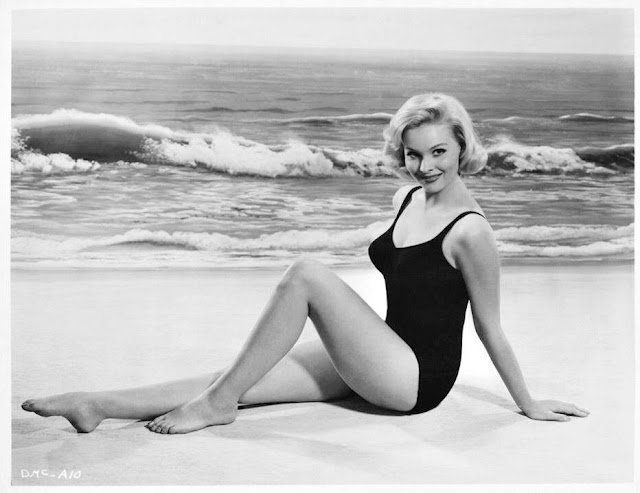 |
| Diane McBain in the 1960s. |
May 1941
May 1, 1941: British Hold Tobruk
May 2, 1941: Anglo-Iraq War
May 3, 1941: Liverpool Hammered
May 4, 1941: Hitler Victory Speech
May 5, 1941: Patriots Day
May 6, 1941: Stalin In Command
May 7, 1941: May Blitz
May 8, 1941: Pinguin Sunk
May 9, 1941: U-110 Captured
May 10, 1941: Hess Flies Into History
May 11, 1941: The Hess Peace Plan
May 12, 1941: Tiger Arrives Safely
May 13, 1941: Keitel's Illegal Order
May 14, 1941: Holocaust in Paris
May 15, 1941: Operation Brevity
May 16, 1941: Blitz Ends
May 17, 1941: Habbaniya Relieved
May 18, 1941: Croatia Partitioned
May 19, 1941: Bismarck at Sea
May 20, 1941: Invasion of Crete
May 21, 1941: Robin Moore Sinking
May 22, 1941: Royal Navy Destruction Off Crete
May 23, 1941: Crete Must Be Won
May 24, 1941: Bismarck Sinks Hood
May 25, 1941: Lütjens' Brilliant Maneuver
May 26, 1941: Bismarck Stopped
May 27, 1941: Bismarck Sunk
May 28, 1941: Crete Lost
May 29, 1941: Royal Navy Mauled Off Crete
May 30, 1941: Sorge Warns, Stalin Ignores
May 31, 1941: British Take Baghdad
2020
